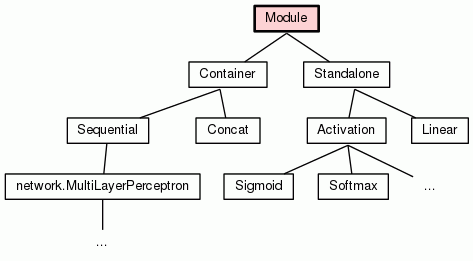If a criterion is given to a module, it is able to compute
the partial gradients of its parameters, in order to perform
a gradient descent.
|
|
|
|
|
linkModule(self,
previous)
Links the outputs of the previous module to the inputs of the current module. |
source code
|
|
|
|
linkInputs(self,
vector,
nInputs)
Sets the symbolic vector as the inputs of the current module. |
source code
|
|
|
function
|
trainFunction(self,
batch_size=1,
lr=0.1,
downcast=None,
shared_x_train=None,
shared_y_train=None)
Constructs and compiles a Theano function in order to train the module. |
source code
|
|
|
function
|
criterionFunction(self,
downcast=None,
shared_x_data=None,
shared_y_data=None)
Constructs and compiles a Theano function in order to compute the criterion on a given set. |
source code
|
|
|
function
|
forwardFunction(self,
downcast=None,
shared_x_data=None)
Constructs and compiles a Theano function in order to compute the forward on a given set. |
source code
|
|
|
function
|
|
|
|
|
|
|
|
|
|
|
|
|
|
|
|
|
|
|
|
|
|
|
|
|
|

